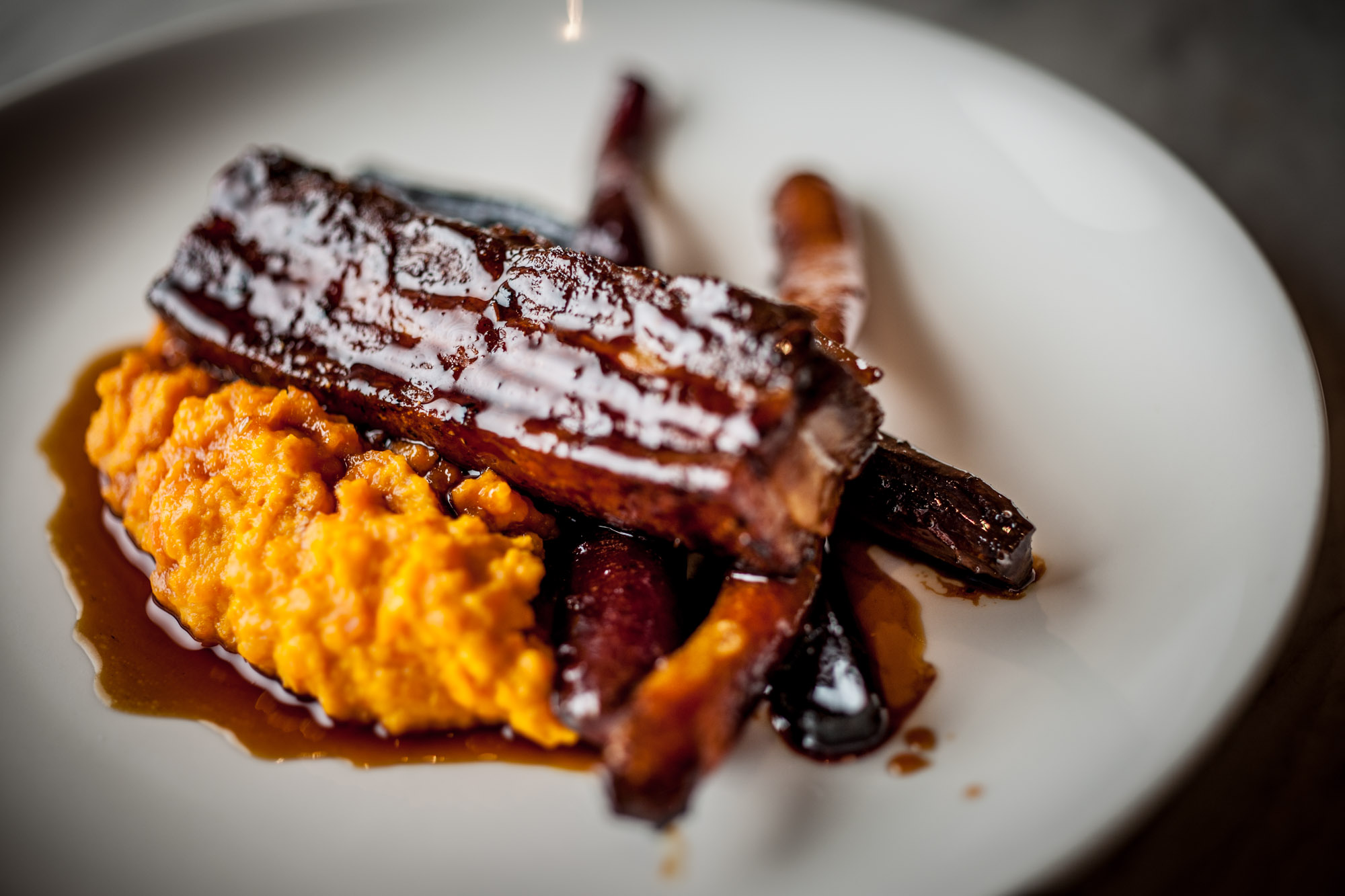

British cuisine is characterized by several unique elements and historical influences that combine to set it apart from other cuisines across the globe. It tends to be less about complex sauces or elaborate preparation when compared to French and Italian cuisine, for example, and more about straightforward, comforting flavors.
Simplicity and seasonality to the fore
The emphasis is on simple, hearty ingredients, such as potatoes, root vegetables, meat – including beef, lamb and pork – fish, and dairy. Additionally, there is a focus on seasonal and locally available produce.
Importantly, Britain does so many things right at the highest level, from a great curry and the best fish and chips to gastro pub feasts and Michelin dining. Just look at Quality Chop house, one of London’s longest running establishments, which does typically British cooking exceptionally well.
Significantly, there has been increased interest in traceability and sustainability around ingredients since the Covid pandemic. People are thinking more about how what they eat affects both the planet and their own health and well-being. As a result, diners are changing the way they look at food, including thinking of it as much more than something to simply fill them up. We can see this in the huge growth in the vegetarian and vegan food segments. Consequently, we are now more in tune with the seasonality of ingredients and cooking with food that is locally sourced which is helping to support local growers and farmers.
A rich heritage
British cuisine has evolved significantly over the centuries, shaped by historical events, cultural exchanges and social changes. Initially, British food was largely influenced by the Norman conquest and medieval agriculture. Diets were based on seasonal, local ingredients, such as meat, root vegetables, grains – like barley and wheat – and dairy.
During the Renaissance and Early Modern eras, the age of exploration brought new ingredients from America and Asia, including maize, spices and sugar, which were gradually incorporated into British diets. Gradually, culinary techniques became more refined, supported by improved cookbooks and more emphasis on presentation, especially in aristocratic kitchens.
The onset of urbanization during the industrial revolution greatly changed eating habits across Britain. Other contributors included the emergence of canned foods in the early 19th century. Over time, an expanding pub culture, alongside the iconic fish and chip supper, helped to feed growing city populations. Britain also felt the influence of Indian, Caribbean, Chinese and Southeast Asian cuisines through the British Empire. Curry became popular on menus and in kitchens, for example, leading to uniquely British dishes like chicken tikka masala.
A culinary melting pot
Today, British cuisine consists of a richly diverse and truly global blend of traditional recipes with international influences. The culinary scene across the entire UK is a melting pot of tastes, flavors and produce, helping Britain to carve a niche as a destination for a diverse and intriguing mix of food. This vibrant culinary evolution, which blends nostalgia with innovation, is exactly what we aim to showcase at Muse. However, rising interest in British food has meant more talented chefs are now working in regions throughout the UK.
British cuisine and sustainability
Sustainability is deeply entrenched in British cuisine. For example, there is a focus on utilizing every part of the vegetable through root-to-stem cooking. This practice not only elevates humble ingredients but reduces waste and promotes eco-friendly dining practices. Significantly, we’ve also witnessed rising interest in native British seafood, with consumers increasingly seeking locally sourced and sustainable options.
Other trends include rising demand among guests for unique, sensory-rich dining experiences. Consequently, interactive dining options, such as live cooking demonstrations and street food-inspired offerings, are becoming increasingly popular. This is especially true in urban areas and travel destinations.
Classic British comfort foods will always have a place in hearts and on dining tables. Excitingly, however, these dishes are today being reimagined and reinvented with premium ingredients that are grown and sourced locally. Linked to this trend, we’re seeing chefs showcasing exciting and highly individual ways of cooking. The techniques they are adopting are not only innovative but also enabling them to connect deeply with diners.
Exciting prospects
British gastronomy looks set for an exciting and dynamic future, shaped by a blend of tradition, innovation, sustainability and global influences. Interestingly, the line between fine and casual dining is blurring, with demand rising for more accessible yet refined experiences.
Nutritional awareness continues to grow and will push British gastronomy toward healthier, balanced meals without compromising on flavor. I’m a huge advocate of this trend and a firm believer that healthy dishes don’t have to be boring.
Climate-conscious dining is also becoming increasingly popular, with a focus on ethical fishing and meat reduction. These shifts in consumer choices will inevitably necessitate adjustments to menus, such as including more plant-based options, for example.
Smart storytelling
Significantly, cost-of-living pressures and higher taxes are also affecting the British restaurant scene. People are understandably eating out less and cooking better meals more often at home. As a result, we can expect to see the fine dining market become even more niche and squeezed. Restaurateurs will therefore need to be more open to change and diverse in their approach to attracting customers. Communicating your story – telling customers who you are and what you stand for – is crucial. Today’s diners are looking for a more personal, immersive and thought-provoking experience. Remember, it’s no longer enough to only serve good food
– plenty of places are doing that. You also need to showcase your personality and offer customers a truly unique experience. It’s imperative today to give diners a true sense of who you are.

Tom Aikens,
chef and proprietor at Muse
tomaikens.co.uk
@tomaikens








